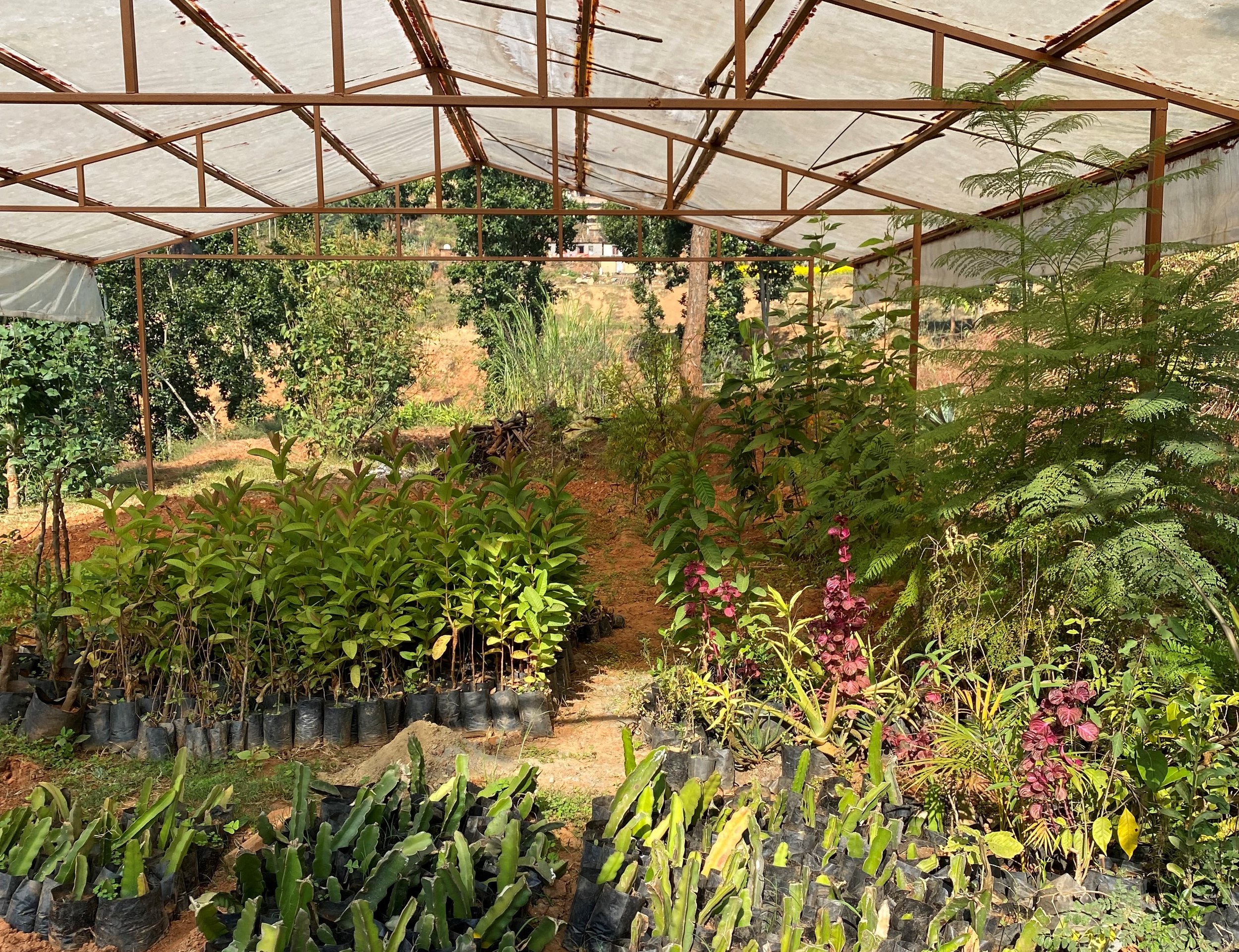HOPEFUL FARMERS IN KAVREPALANCHOK
By Ruby Glasspool (UK Executive Director)
Last week I had the pleasure of visiting several farming communities in the Kavre region of Nepal, where TGT partner EcoHimal have been working to support farmers in organic farming and making use of marginal land.
I visited the Agro-Forestry Resource Centre [AFRC] and met the incredible team of people there who support these communities. Their skills in, and passion for agriculture, animal care and environmental science were truly impressive. In total there are 6 staff who work and live directly in this AFRC, and day and night they work tirelessly to train and support local farmers, nurture crops and continuously look for ways to combat the many effects of climate change on farmers lives.
Staff and local farmers at the AFRC in Kavrepalanchok
I learned that soil nutrients are rapidly declining in the area, and to combat this farmers inter-crop different varieties of crops with roots that keep soil nutrients healthy. I also learned that steep, sloped land is regularly collapsing and destroying crops and reducing available land because of intense monsoons. The farmers plant broom grass which not only stabilises the slopes against landslides, but also fetches a fair price in markets when sold as cleaning brooms for household use.
A meeting with 4 local farmers in Halede, Kavrepalanchok to discuss current challenges and successes
I have been truly inspired by the level of hope the farmers have for their futures as organic commercial farmers. It is still early days in terms of implementing the project, and training is being carried out along with the planting of various trial crops using specialist agricultural techniques. Farmers are beginning to sell some crops, but have yet to see the full fruition of their labour. One farmer told me that he has seen the success of some of his neighbours and he is extremely hopeful about becoming a successful commercial farmer himself. The patience and commitment and passion for organic farming I have seen in these farmers has been incredibly humbling.
Farmer Brem with his seedlings and thriving crops in the village of Bhatpol, is well on his way to yielding his first commercial crop
Yes, we are supporting poor rural communities to build a sustainable income, and improving the nutrition in the community, but more importantly we are employing techniques that enable mindful, effective climate adaptation. Planting broom grass stabilises slopes, intercropping introduces much needed soil nutrients back into the land, planting coffee trees captures Co2, using bio-pesticides [animal manure] eliminates harmful chemical use and strategic planting of trees and bushes that create shade allows the farmers to grow crops that would otherwise die in the heat of the sun.
An abundance of seedlings to distribute to the farmers at the AFRC
The Kavrepalanchok project is only in its first couple of years of implementation, but on visiting them it’s very clear the enormous level of potential this has for the lives of the communities and for our contribution to supporting mindful climate adaptation. Already some crops are producing commercial quantities of organic produce and is being sold at a fair price at local markets. Farmers get 24 Rupees for 1kg of tomatoes, which the middle-man then sells for 60 Rupees at the markets. Currently farmers themselves aren’t able to get 60 Rupees directly themselves, as without branding and marketing they are not taken seriously by the buyers at the market. The middle-men have this branding and level of commercial professionalism, and it was clear that this is the next step in supporting our farmers.
Proud farmers with an early yield of organic tomatoes ready for selling
My visit to Kavrepalanchok was inspiring, hugely promising and educating. I can now return to the UK and act as an effective middle-woman myself, to continue to raise support and funds for these incredible projects.






